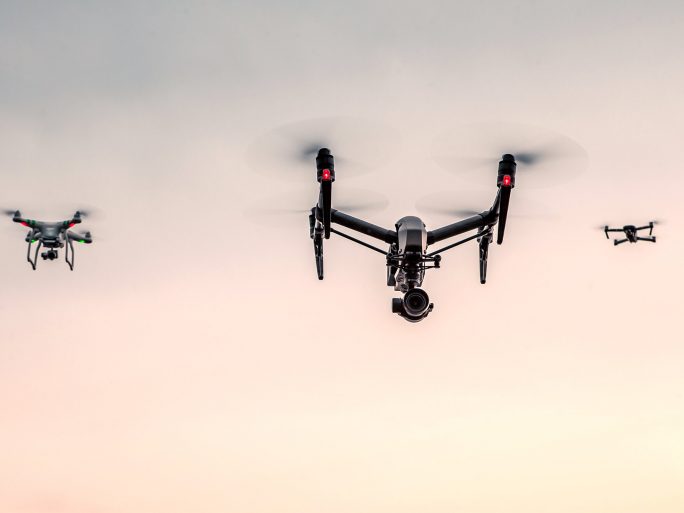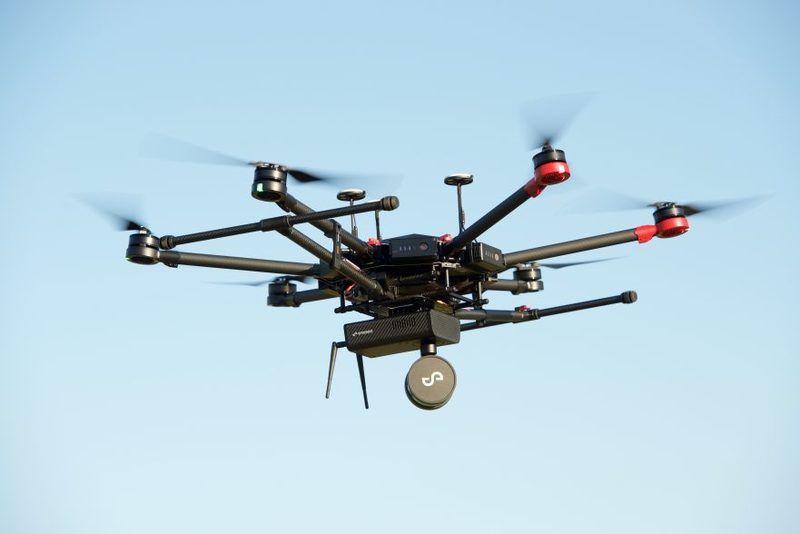Chinese Drones Pose Spying Risk, US Authorities Warn

Drones manufactured or sold by Chinese firms, such as market leader DJI, may pose a risk to national security or critical infrastructure, authorities say
The US has warned businesses and other organisations on the potential spying threat of using drones manufactured in China, potentially adding a new front to the US’ trade conflict with the world’s second-largest economy.
The warning, which comes after the US Department of Commerce placed China’s Huawei on a trade blacklist last week, says organisations using drones for tasks related to national security or critical infrastructure are particularly at risk.
It does not refer to a specific company, but DJI, which like Huawei is based in Shenzhen in southern China, is the world market leader for aerial cameras.
The company made up nearly three-quarters of global sales last year, according to research firm Skylogic, and accounted for more than 70 percent of the US market for drones costing more than $500 (£393).

Espionage
The US’ Cybersecurity and Infrastructure Security Agency, a subsidiary of the Department of Homeland Security (DHS), issued its warning notice on Monday, according to CNN and other outlets.
Directed to US businesses, it highlights the hazards of using drones manufactured or sold by companies “operating under the control or influence of a foreign authoritarian state”, since the devices’ cameras and sensors are “capable of collecting and transferring potentially revealing data about their operations and the individuals and entities operating them”.
“The United States government has strong concerns about any technology product that takes American data into the territory of an authoritarian state that permits its intelligence services to have unfettered access to that data or otherwise abuses that access,” the memo says.
“China imposes unusually stringent obligations on its citizens to support national intelligence activities.”
Data control
DJI said it gives customers “full and complete control” over how their data is collected, stored and transmitted.
“For government and critical infrastructure customers that require additional assurances, we provide drones that do not transfer data to DJI or via the internet, and our customers can enable all the precautions DHS recommends.”
No. 2 Chinese drone seller Yuneec joined forces with a US-based software and cloud storage provider last year to address the concerns of government and other security-conscious clients.
In 2017 the US barred troops from using DJI’s drones due to unspecified security concerns, and the same year the US Immigration and Customs Enforcement (Ice) agency accused the firm of “providing US critical infrastructure and law enforcement data to the Chinese government”.
DJI responded by introducing a mode that prevents data being transferred via the internet.
The company’s devices are widely used by US government agencies, with the US Department of the Interior saying in a report last year it had flown more than 1,500 test flights using DJI drones.
The drones can be used for wildlife monitoring, land management, infrastructure inspections and other purposes.
A report last week from the American Association of State Highway and Transportation Officials said that all 50 US states now use drones in an official capacity, with 36 states employing certified drone pilots.
DJI’s Aeroscope drone-detection systems were being trialled by Gatwick Airport at the time of the drone intrusions there last December.